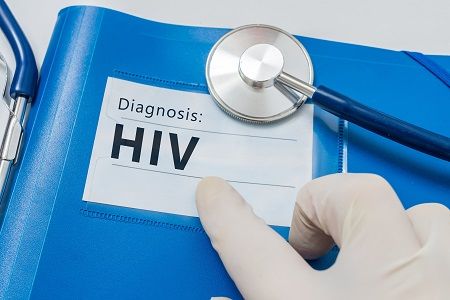Article
People with HIV and Chronic Pain Don't Lose as Much Function as Expected
Author(s):
The body’s inflammatory response to the human immunodeficiency virus (HIV) is one reason why patients with HIV can experience chronic pain.

The body’s inflammatory response to the human immunodeficiency virus (HIV) is one reason why patients with HIV can experience chronic pain. In fact, the International Antiviral Society (IAS)-USA went as far as to say that the occurrence is common among this population. However, evidence suggests that chronic pain does not interfere with activities, such as walking and going to work, as much as previously thought.
Researchers from the Brain Function Research Group (BFRG) from University of the Witwatersrand in South Africa conducted an analysis in an effort to further understand the burden of chronic pain associated with HIV. They hypothesized that, in general, people with HIV would be pretty resilient (able to cope with their difficulties) — and more resilience would translate to more activity and less pain intensity. But these assumptions weren’t all proven.
Using a cohort of 197 black patients with HIV from South Africa, the team set out to determine the degree to which pain impacts function. Chronic pain, defined as pain most days for at least three months, was present in 99 patients.
“It turns out that HIV-related stigma is a real problem and that half the patients in pain had not told their closest friends and some not even their family about their pain, for fear that it might reveal their HIV status,” first author Antonia Wadley, PhD, from the School of Physiology, Faculty of Health Sciences at Wits University, explained in a news release.
Published in PeerJ, the report said that the participants were actually highly resilient — and more resilience translated to better quality of life, but it did not impact pain intensity or interference.
Additional analysis was conducted in 37 participants with chronic pain and 31 without. After they wore an actigraph for two weeks, in order to assess physical activity, it turns out that activity duration and intensity did not differ between the groups. Activity was also not associated with resilience.
“It turns out that we were right on one thing, HIV-positive patients in our study were really resilient, but our hypothesis was wrong: being more resilient did not associate with being more active or having lower pain intensity,” Wadley confirmed. “In fact, the activity results astounded us. Not only was patients’ activity not as affected as one might expect, it wasn’t affected at all.”
But why was this? The team thought maybe other worries, such as money and family, were taking priority and, therefore, the patients weren’t recognizing their pain as much. The researchers found that there’s truth to this. Those with chronic pain worried more about these other things than those with HIV but without pain.
More findings revealed that stigma plays an important role in HIV-related pain. Of those with chronic pain in this study, half of them didn’t even tell their closest friends (and some even family) about their HIV status. Therefore, patients could continue to do too much physical activity out of fear of disease stigma.
While HIV-related pain has the power to affect function and physical activity, that did not appear to be the case in this study. However, Wadley said that they’re going to look into whether this level of physical activity helps or harms patients with HIV and pain.
Further Coverage:
Depression Contributes to Heart Attack Risk in HIV-Positive People
Dormant HIV Proviruses Pose a Problem for Accurate Viral Count
Common HIV Drugs Can Hit the Wrong Target, Cause Adverse Effects




